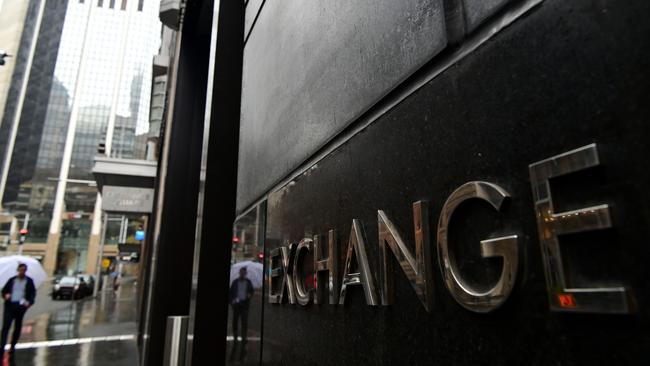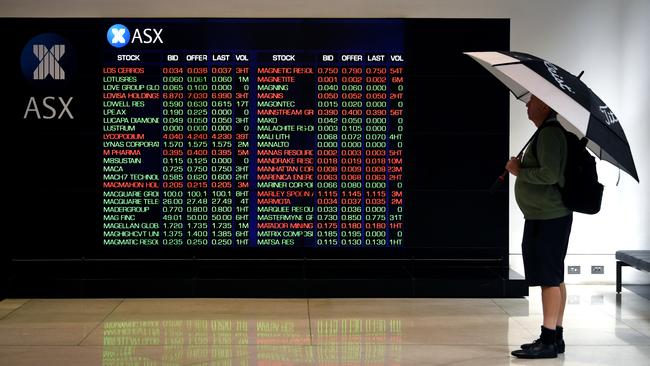Why the usual line of defence has been vulnerable

But to me the bigger issue that surfaced throughout the month was how vulnerable traditional defensives turned out to be in the face of higher input costs, skilled labour shortages, rising wages, rent increases and costlier debt.
Ahead of August, I worried about extreme volatility and relentless punishment in case of perhaps only mild disappointments. That inkling has been proved correct. On UBS’s assessment, August 2023 has been one of the most volatile and challenging reporting seasons in history.
And traditional defensives have played a prominent role in contributing to August’s notable spike in share price volatility as the likes of Coles, Endeavour, Ramsay Health Care, Transurban and Telstra all managed to disappoint one way or another, leading to immediate selling pressure once their financial results had been communicated.
As a group, defensives have largely trodden water post-Covid and lockdowns, and some, including Coles, Ramsay and APA, no doubt have left many a loyal shareholder with a sense of dissatisfaction as shares are today trading at levels last seen during pre-Covid years.
This is quite remarkable and I suspect surprising to most investors and sharemarket strategists given the rapid reset in global bond yields and central bank cash rates over the past 20-plus months, triggering widespread anticipation of much slower growth ahead for economies across the globe.
In such an environment, Investing 101 tells us defensive assets and businesses should be on investors’ target list to preserve capital, secure income, avoid major disasters and still achieve at least moderate capital gains.
But this time around the overall defensive experience has been underwhelmingly mixed at best, and that’s assuming portfolios were not overly exposed to Coles, Ramsay or ResMed which recorded share price falls of 12 per cent, 12 per cent, and 24 per cent respectively just in August.
It remains yet to be seen whether disappointment to date makes investors more apprehensive towards this segment on the local sharemarket. Post August, corporate Australia is forecast to be en route for negative profit growth, on average in aggregate, and for less dividend payouts over the 12 months ahead.

Not exactly an environment in which defensives cannot or won’t make a comeback, especially given most of the post-Covid headaches are seen to be reducing already.
Within this context, model portfolio managers at Wilsons recently added Amcor, believing its shares are poised for outperformance as the valuation looks attractive and further downside for earnings is seen as unlikely.
Healthy healthcare
Apart from supermarkets, the country’s largest telco and utilities, the local healthcare sector has been for many years the logical go-to destination on the ASX when times became tougher, but healthcare yet again produced multiple prominent disappointments this August season.
ResMed, the world’s No.1 manufacturer of CPAP devices assisting people with sleep apnoea, missed market forecasts by some -5 per cent on slower-than-anticipated margin recovery, but its share price has undergone a seldom witnessed de-rating (-24 per cent) as hedge funds and shorters in the US, where the shares are also listed, play winners and losers from immensely popular anti-obesity drugs marketed by Eli Lilly and Novo Nordisk.
An equally dramatic de-rating has taken place for private hospital operator Ramsay Health Care, long considered a quality backbone stock for investment portfolios. But the long-term uptrend on historical price charts has flatlined since 2016, with last month’s sell-off pushing the shares to their lowest level since 2014.
Ramsay’s disappointment in August has left analysts with a veritable smorgasbord of questions, ranging from the sustainability of higher operational costs (permanently lower margins?) to the hospital operator’s true negotiating power versus health insurers, the need to diversify into costly out-of-hospital care, and the company’s viable options when governments feel the pressure of budget constraints.
Ramsay’s balance sheet is also burdened by a mountain of debt, so no surprise the company is intending to find a buyer for its Asian JV, Ramsay Sime Derby, to provide relief.
Though the shares look on most assessments undervalued, assuming some kind of normalcy can return in due course, Ramsay has very few buy-rated believers left among healthcare analysts. Ten times bitten, 12 times shy?
With the notable exception of high-quality, small-cap superpower-in-ascendancy, Pro Medicus and large-cap Cochlear, healthcare was one sector mostly on the receiving end in August.
All of Ansell, APM Human Services International, Audeara, Australian Clinical Labs, Capitol Health, CSL, Healius, Integral Diagnostics, Monash IVF, Nanosonics, Polynovo, Sonic Healthcare, Telix Pharmaceuticals and others in the sector were unable to awaken the fire in investors’ belly.
In contrast with Ramsay and ResMed, analysts are left with a whole lotta less unanswered questions about the outlook for healthcare stalwarts such as CSL, Cochlear, Sonic Healthcare, Monash IVF and some of the smaller representatives, as Covid-related headwinds are considered not permanent, and wearing off.
This in itself should prepare the sector for making a “healthy” comeback over the coming 12-24 months, all else remaining equal.
August revealed the consumer is still remarkably resilient, though a variety of indications were equally provided that suggest the coming months might extend and deepen the true impact from steep RBA tightening.
Nevertheless, investors as well as analysts seem in agreement that things might not get as bad as feared, not even when more negative impact is still in the future.
Thus August showed a notable improvement in general sentiment towards retailers such as Accent Group, JB Hi-Fi, Lovisa, Nick Scali, Premier Investments, Super Retail, The Reject Shop, and Universal Store.
True strength emanated from the insurance sector and from leisure and tourism with the likes of Auckland International Airport, Camplify, Corporate Travel Management, Experience Co, Flight Centre, Helloworld Travel, Hotel Property Investments, Qantas, and Tourism Holdings Rentals either meeting or beating already high expectations, with strong operational momentum projected to continue into FY24.
Negative yields
Higher bond yields means those with debt are facing a costlier outlook, either today or when debt needs to be refinanced.
This proved one of the recurring negative revelations as analysts, generally speaking, had been underestimating by how much exactly the cost of debt had increased for the likes of Amcor, Ramsay and numerous others.
The rising cost of debt is in particular a formidable negative for ASX-listed REITs, many of whom are now effectively ex-growth, often through the combination of higher operational expenses, top-line pressure, falling asset prices and higher interest from debt.
A similar conundrum awaits owners of offices. Investors are worried those assets are worth a whole lot less than yesterday’s valuations as industry dynamics remain opaque and uncertain.
In the sharemarket, securities of the likes of Cromwell Property, Growthpoint, and Unibail-Rodamco-Westfield are trading well below analysts’ underlying valuations, but your average investor is happy to leave any such opportunities to the daring value investor with higher appetite for risk, and unlimited patience.
The A-REITs sector entails many more sections and options, think industrial development a la Goodman, but also childcare centres through Arena REIT, storage facilities, and non-discretionary retail landlords. Several REITs with such alternative exposures are being re-rated post financial updates in August.
One example is the HomeCo Daily Needs REIT, which is held inside the FNArena/Vested Equities All-Weather Model Portfolio. Its securities have appreciated by close to 12 per cent over the past two weeks, significantly reducing the gap with FNArena’s consensus target, which on Monday is still close to 8 per cent higher.
Goodman has been an exception among large-cap, high-quality defensives in August, releasing financial results that attracted virtually no doubt or criticism, supporting ongoing optimism about its future growth potential.
August in numbers
Having updated on 385 companies, including many more smaller-cap companies than in the past, FNArena’s Results Season Monitor has designated 111 reports as a “beat”, against 167 in line and 107 missing the mark. It is important to note that these assessments are not made purely on net profit or earnings per share coming in higher or lower than analysts forecasts.
Any guidance for the year ahead is equally taken into account, as well as specific details that affect forecasts and valuations post result releases.
On current assessment, these stats suggest total “beats” have outnumbered “misses” by 28.8 per cent versus 27.8 per cent, but is this genuinely a positive?
FNArena has been monitoring results since August 2013. Over that decade, most result seasons finished with more beats than misses. Usually the gap in favour of beats is a lot wider.
On current consensus forecasts, the average EPS for the ASX 200 is poised for a 6.2 per cent drop in FY24, with the outlook for the ASX 100 even worse: -7.2 per cent. A lot of this can be attributed to China and the miners, which marked yet another notable disappointment in August.
The expectation is that total dividends will yet again shrink further by this time next year.
Rudi Filapek-Vandyck is the editor at share market research service www.fnarena.com







One of the standout features of the August results season has been the resilience of household spending, which proved pivotal in keeping the balance of the season skewed towards not-as-bad-as-feared outcomes from discretionary retailers in particular.